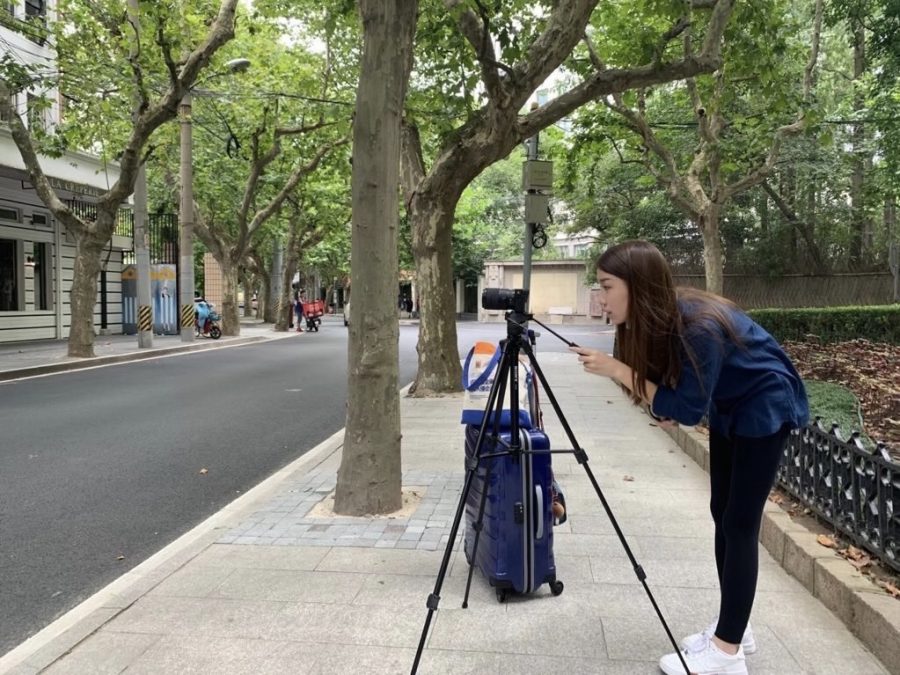Jasmine Wan (‘23) stands behind a camera as she works on a project during distance learning. Since her sophomore year, Jasmine has been passionate about the art of filmmaking.
Film
From her amateur days in middle school to being on actual sets, Jasmine Wan (‘23) has fallen in love with the art of filmmaking. She has brought her own ideas to life through her camera and with the help of her friends. Before she continues her film career at USC’s School of Cinematic Arts, check out her website and read this interview with her on filmmaking:
Interview by Noelani Chock
Noelani Chock: Can you tell me a bit about your experience with film?
Jasmine Wan: I started filmmaking when I was in middle school. When I started seriously doing film on sets, before my sophomore year started, I participated on a couple of film sets with my friends and then I started doing my own film projects with my actor and actress friends. That’s basically how I started filmmaking.
N.C.: What interested you in filmmaking?
J.W.: What’s really unique about my filmmaking journey is that I started filmmaking by learning how to use the camera. A lot of people start because they’re interested in watching film, but I actually started it by learning how to use the camera and edit things. I found that really interesting, like how you play with the angles of a shot and how you can edit all the clips into an amazing visual stimulation with the music, special effects, and different colors.
N.C.: What goes into making a film and what are the ups and downs?
J.W.: I think the biggest thing is organization. I mainly do small independent projects with maybe a couple of friends, so for my projects, they don’t really require cooperation with different people. But I guess for big film sets, they require directors to work with, the camera person to work with, the audio person to work with, the actors and actresses. Personally, for my projects, it’s mainly just organizing how you want to shoot things. You have to book the set, contact everyone on the set to be there at the same time, and make sure it doesn’t overlap with other things so you can get it done in time. I think that’s really important.
N.C.: What inspires you to make films? Or what are your films about?
J.W.: I made a lot of films about the pandemic and how people felt during the pandemic. I mainly focus on people’s emotions and feelings. Also, I made a lot of experimental videos which is technically not film, but they are also in the category of video making. They really focused on the psychological side of people, and how they feel in times of trauma and in times of serious events happening and how that impacts them.
N.C.: Are there any films or pieces of work that you’re really proud of?
J.W.: I think the summer of 2021 I made my first thesis film called The Evening Primrose, and it was actually adapted from a song that I really love. It was a love story, and it was the first time I worked on a long film with a couple of friends I know. It took me a while to find the set and write the script and everything, but I think what I’m most proud of is the scale of it. I went out to find an actual factory and a disco place to shoot and that was a really fun experience for me. The color and the tone of it was in reference to Wong Kar-Wai’s videos, which is a director I really respect. It was like a remake of my favorite director’s film.
N.C.: Finally, why film? Why does it speak to you more than other forms of art?
J.W.: To me, film is a combination of audio and visual stimulation which really differs from photography or painting and stuff. In film, you submerge yourself in it and I think the emotional power of film is really striking to people, how it can impact someone and how they can relate to characters. I think that’s a really important part of why I chose film.
This interview has been edited.
Check out Jasmine’s work here!
